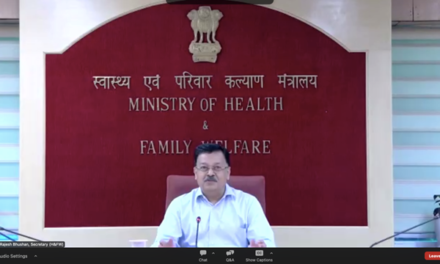Despite widespread awareness of the benefits of preventive healthcare, many people fail to adopt proactive measures to safeguard their health. Christopher Dye, DPhil, a professor of epidemiology at the University of Oxford and former director of strategy at the World Health Organization, believes understanding the deeper motivations and perceptions behind health-related decisions is crucial to promoting preventive practices.
“In public health, we tend to prescribe solutions,” Dye explained in an interview with Medscape Medical News. “But unless we understand how people make choices about health—why they’re less interested in prevention and more comfortable waiting until they’re ill—we can’t effectively shift from curative treatments to preventive strategies.”
The Paradox of Prevention
While most people recognize prevention as the rational course of action, many fail to act. This disconnect, according to Dye, stems from how individuals evaluate potential health risks. Decisions hinge on three key questions:
- What is the nature of the hazard?
Severe threats, such as Ebola with its 50% case fatality rate, prompt more action than milder threats like COVID-19, even though the latter has broader implications. - How likely is it to happen?
Perceived likelihood heavily influences concern. Severe risks that seem unlikely elicit less urgency. - When is it likely to happen?
Immediate threats are far more compelling than those projected into the distant future, a phenomenon rooted in “temporal discounting,” which prioritizes short-term over long-term outcomes.
“When severity, likelihood, and immediacy align with low costs for mitigation, people are more likely to act,” Dye said. However, these costs extend beyond financial considerations to include effort, willpower, and access to resources.
Economic Stability Shapes Preventive Behaviors
Theresa Marteau, PhD, a behavioral scientist at the University of Cambridge, highlights how socioeconomic factors exacerbate the challenge. For those grappling with poverty or instability, immediate needs often overshadow concerns about future health.
“People value their health regardless of their circumstances,” Marteau said. “But they may lack the resources to engage in preventive behaviors.”
Dye echoed this sentiment, noting that stability enables long-term thinking. “Financial security, stable jobs, supportive families, and comfortable homes make it easier to invest in the future,” he explained. For those struggling with basic needs, engaging in health-promoting activities can feel like an unattainable luxury.
Bringing the Future to the Present
Experts agree that effective interventions must bridge the gap between immediate actions and long-term benefits. Dye advocates using both deterrents and rewards to make preventive behaviors more appealing.
Raising the cost of unhealthy behaviors, such as through cigarette taxes, has proven effective in reducing harmful practices. Meanwhile, offering tangible rewards—like incentives for regular health checkups or fitness program participation—encourages preventive habits.
“The key is ensuring these benefits are timely and meaningful,” Dye said. “Delayed rewards are less effective in overcoming the natural bias toward the present.”
Healthcare Providers as Catalysts
Healthcare providers play a critical role in promoting prevention by guiding patients toward supportive services. According to Marteau, the emphasis should be on practical support rather than mere advice.
“It’s not about telling people to stop smoking or change their diet,” Marteau said. “It’s about signposting them to effective services that can help them make these changes.”
As public health continues to navigate the challenges of shifting focus from treatment to prevention, understanding the complex interplay of psychological, social, and economic factors is essential. By addressing these barriers, experts hope to make long-term health a priority for all, regardless of circumstance.












